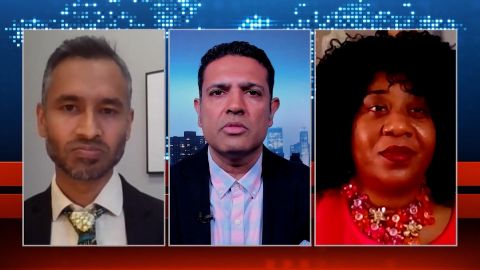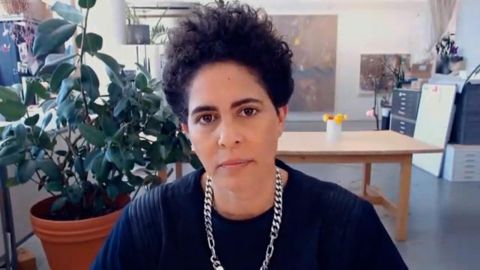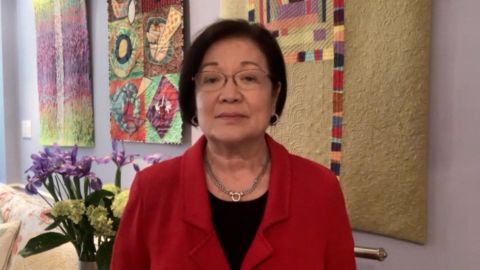Read Transcript EXPAND
SEN. MAZIE HIRONO: However, we were all watching the news and watching Asian women and Asian people, Pacific Islanders being kicked, being slapped, being slashed, all of that. You could not help but recognize that this was happening in our country in every single state, including the District of Columbia. As so, as we put this bill to the floor — and I can thank Chuck Schumer for really fast-tracking this bill — then there grew some discussion around it. And I think the Republicans decided that perhaps they should be on board too. But it took some time, negotiations with particularly between me and Susan Collins, which I really welcomed, to get this bill on the floor. We had to fend off some damaging amendments. And, ultimately, every one but one Republican who were present that day voted for the bill.
CHRISTIANE AMANPOUR: Yes, you know what? I’m not even sure it’s worth really sort of talking about that one, because it’s such an absolute minority.
HIRONO: Yes.
AMANPOUR: So, the real issue and the fact is that you have won this battle for human rights. And it comes amid some really shocking statistics. Let me just read you. You know this but, obviously, but 81 percent of Asian Americans say violence against them is rising in the United States. That’s according to Pew. The number of hate crimes against Asians increased by 150 percent in 2020. That’s according to the Cal State University. And the group Stop AAPI Hate got almost 4,000 reports of these incidents just since March. And, of course, leaders in many Asian countries around the world have been voicing their consternation and their concern about this. Do you have any particular single theory about why this has exploded to this level right now?
HIRONO: I start with the fact that racism is never far below the surface, and the AAPI community has always been viewed as the other, the perpetual foreigners. So, you have laws, such as the Chinese Exclusion Act being passed in our country. You have the internment of 120,000 Asian Americans during World War II. You have the Muslim ban. And, of course, there is the systemic racism against the black community. But the Asian community has always been seen as, I mentioned, the other and felt quite invisible.
About This Episode EXPAND
Mazie Hirono; Julie Mehretu; Vivek Maru and Rhonda Hamilton
LEARN MORE


